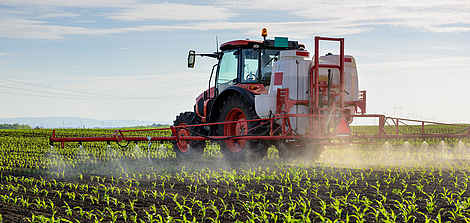Pesticides are substances that are used in agriculture and public health to control pests. The word “pesticide” comes from the English pest meaning “harmful insect or plant, parasite”, and “-cide”, from the Latin caedere, “to strike, to shoot, to kill”. Pesticide use has been recorded as far back as 4500 years ago in ancient Mesopotamia, where Sumerians used elemental sulphur compounds to control insects and mites. About 3200 years ago the Chinese were using mercury and arsenic for body lice [1]. In fact, until the middle of the 20th century various nature-derived compounds and toxic plants were used for pest control [2]. The Second World War marked the beginning of the synthetic pesticide era with the discovery of the insecticidal effects of Dichlorodiphenyltrichloroethane (DDT) by Paul Muller, which earned him the Nobel Prize in Medicine. Now, eighty years later, the use of DDT is banned in many places because of its incredibly harmful effects [3].
